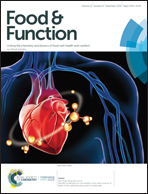 “Microglia are the resident, innate immune cells of the central nervous system (CNS) and are critical in managing CNS injuries and infections. Microglia also maintain CNS homeostasis by influencing neuronal development, viability, and function. However, aberrant microglial activity and phenotypes are associated with CNS pathology, including autism spectrum disorder (ASD). Thus, improving our knowledge of microglial regulation could provide insights into the maintenance of CNS homeostasis as well as the prevention and treatment of ASD.
“Microglia are the resident, innate immune cells of the central nervous system (CNS) and are critical in managing CNS injuries and infections. Microglia also maintain CNS homeostasis by influencing neuronal development, viability, and function. However, aberrant microglial activity and phenotypes are associated with CNS pathology, including autism spectrum disorder (ASD). Thus, improving our knowledge of microglial regulation could provide insights into the maintenance of CNS homeostasis as well as the prevention and treatment of ASD.
Control of microglial activity is in part overseen by small, lipid-derived molecules known as endogenous cannabinoids (endocannabinoids). Endocannabinoids are one component of the endocannabinoid system (ECS), which also includes the enzymes that metabolize these ligands, in addition to cannabinoid receptor 1 (CB1) and 2 (CB2).
Interestingly, increased ECS signaling leads to an anti-inflammatory, neuroprotective phenotype in microglia. Here, we review the literature and propose that ECS signaling represents a largely untapped area for understanding microglial biology and its relationship to ASD, with special attention paid to issues surrounding the use of recreational cannabis (marijuana). We also discuss major questions within the field and suggest directions for future research.”
https://www.ncbi.nlm.nih.gov/pubmed/31619967
“Microglial activity can be modulated by eCB signaling, which makes the ECS a potentially forceful tool in the prevention and management of CNS dysfunction.”
https://www.frontiersin.org/articles/10.3389/fncel.2019.00424/full

 “The healthy benefits of hemp (
“The healthy benefits of hemp ( “Cannabinoids exhibit anti-inflammatory and antitumorigenic properties.
“Cannabinoids exhibit anti-inflammatory and antitumorigenic properties. “Cannabis is increasingly being used world-wide to treat a variety of dermatological conditions. Medicinal cannabis is currently legalized in Canada, 31 states in America and 19 countries in Europe. The authors reviewed the literature on the pharmacology and use of
“Cannabis is increasingly being used world-wide to treat a variety of dermatological conditions. Medicinal cannabis is currently legalized in Canada, 31 states in America and 19 countries in Europe. The authors reviewed the literature on the pharmacology and use of 
 “Understanding how the body regulates pain is fundamental to develop rational strategies to combat the growing prevalence of chronic pain states, opioid dependency, and the increased financial burden to the medical care system.
“Understanding how the body regulates pain is fundamental to develop rational strategies to combat the growing prevalence of chronic pain states, opioid dependency, and the increased financial burden to the medical care system. “Hemp (
“Hemp ( “2-Arachidonoyl-glycerol (2-AG) is an
“2-Arachidonoyl-glycerol (2-AG) is an  “Use of medical cannabis for improving symptoms of inflammatory bowel disease is increasing. However, reports on long-term outcomes are lacking. This prospective, observational study assessed the effects of licensed cannabis use among patients with inflammatory bowel disease.
“Use of medical cannabis for improving symptoms of inflammatory bowel disease is increasing. However, reports on long-term outcomes are lacking. This prospective, observational study assessed the effects of licensed cannabis use among patients with inflammatory bowel disease. “A large body of evidence suggests that dietary n-3 polyunsaturated fatty acids (PUFAs), including eicosapentaenoic acid (EPA) and docosahexaenoic acid (DHA), contribute to a reduced inflammatory tone thereby lowering the risk for several chronic and degenerative diseases. Different mechanisms have been proposed to explain these anti-inflammatory effects, including those involving
“A large body of evidence suggests that dietary n-3 polyunsaturated fatty acids (PUFAs), including eicosapentaenoic acid (EPA) and docosahexaenoic acid (DHA), contribute to a reduced inflammatory tone thereby lowering the risk for several chronic and degenerative diseases. Different mechanisms have been proposed to explain these anti-inflammatory effects, including those involving